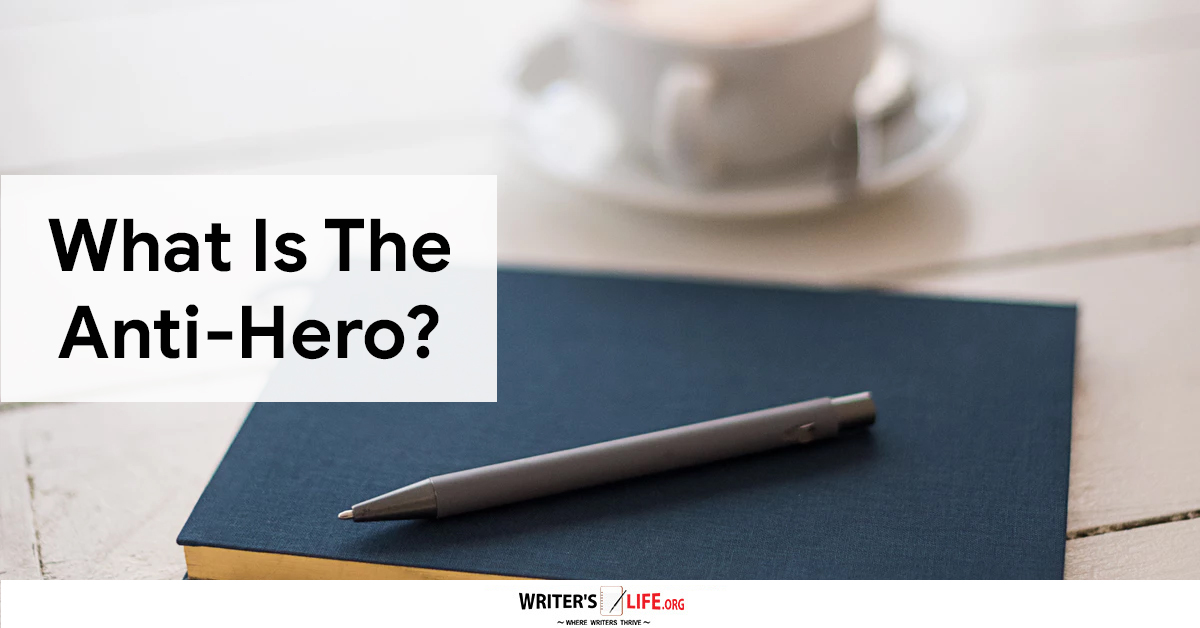- How To Tackle Jealousy In Creative Writing
- Common Submission Mistakes
- How To Stop Your Blog Becoming Boring
- The One Thing Every Successful Writer Has In Common
- How To Make Yourself Aware Of Publishing Scams
- Why Almost ALL Writers Make These Grammar Mistakes At Some Point
- 5 Tips For Authors On How To Deal With Rejection
- Top Mistakes to Avoid When Writing a Novel
- How to Avoid Common New Writer Mistakes
- 10 Mistakes New Fiction Writers Make
What Is The Anti-Hero?

We all know that if we want our books to be successful, we must create a compelling and engaging hero that leads us through the story. One that we root for, and that we desperately hope will achieve their goals.
However, as well as this heroic character, a successful novel also needs a cast of additional ones who play both large and small roles in creating a robust, exciting story that captures your reader's attention from beginning to end.
One of these that is perhaps lesser used is the anti-hero. In fact, some authors use the anti-hero as their main protagonist. Doing so keeps readers on their toes, sometimes loving the actions and feeling secure and confident that this character will do the 'right thing,' then having their world turned upside down where the character doesn't follow suit, doesn't play along, and instead acts selfishly, or downright immorally instead.
Take your typical hero, someone like Superman, for example, who always acts morally and selflessly and for the greater good, and is a character readers can rely on for this. Compare him to a character such as Tyrion Lannister from Game of Thrones who only sometimes does the right thing, and often, even then, not necessarily for the right reasons. This leaves readers unsure of what he will do next or how he will act or react in any given situation.
A protagonist who readers can rely on is safe and comforting. However, one who is more unpredictable can be exciting and make for a far more interesting read.
The anti-hero has moral 'grey areas' and can sometimes act more like the villain than a conventional hero. They don't always display courage or integrity, and though they often end up acting in the right way, their motivations are often not due to positive characteristics.
So what's the difference between an anti-hero and an anti-villain?
While an anti-hero usually ends up doing the right thing, they often act this way not out of the goodness of their hearts, but because of selfish or underhand reasons. An anti-villain, however, is the opposite of this. They often make bad decisions or act in a way that most people would consider to be deplorable, but despite this, they actually have some traits that show them to be noble, or they display sympathy or empathy which is unexpected of a typical villainous character.
A typical anti-hero is full of self-doubt, anxiety, and weakness. However, during the course of the story, they are put in situations that require them to become the opposite of all these things. They may have started out as cowardly and selfish but end up brave and with a deep understanding of why it is better to act for the greater good rather than one's own personal interests.
There are a considerable number of examples of anti-heroes in literature who readers have grown to love. Sherlock Holmes and Bilbo Baggins are two well-known examples. Using an anti-hero as your protagonist can be a great way of adding depth, intrigue, and excitement to your story, are you brave enough to write one?


























